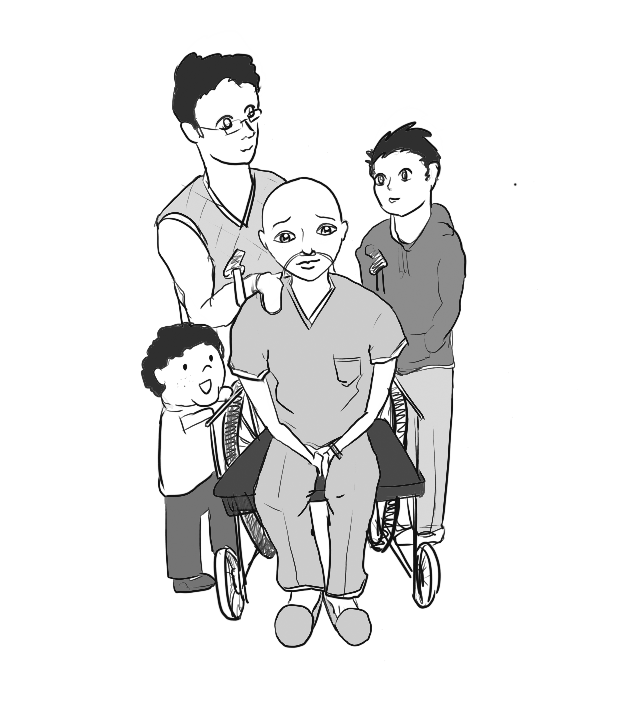
Senior Annie Martin pauses, recollecting visits to her grandpa in the hospital.
“It was kind of hard to see him,” she said. “I think for the most part, my entire family was like, ‘We need to be with him as much as possible,’ and ‘We need to be there to help him,’ Every day of the summer for weeks we were there, and I think that helped him through the process because he knew he had people that were there who support him who loved him who wanted him to get better.”
Martin, like millions of others around the world, has had the painful experience of a diagnosis of cancer in her family. After realizing that they might lose their grandpa, who developed colon cancer in the summer of 2016, Martin and her brother understood that no time could be taken for granted.
“I’ve always been really close with my grandpa,” she said. “Together my brother and I make an effort to go on walks with my grandpa or we’ll be like ‘Oh let’s go get milkshakes,’ and we’ll call him all the time, and we’ll go play tennis — well he doesn’t really play tennis — he kind of watches us play tennis all the time … There’s that point where we thought we were going to lose him, and that’s really scary, so we just don’t take [for granted] our time at all.”
Junior Noah Salah did not realize the full gravity of his mother’s Stage 3 breast cancer when she was first diagnosed when he was in third grade.
“I remember that my mom was sick, but I don’t really remember how serious it was or that I could lose her,” he said. “My dad had to drive me to school, that was a big change. My mom usually drove me to school, and so my dad [started], he had to cook and we had to do stuff by ourselves more often because my mom was going through chemo.”

However, years later, he learned more about the full reality of the situation.
“I didn’t find out it was Stage 3 until kind of recently,” he said. “I thought it was Stage 1 or 2, but I didn’t realize how serious it was, as I said. It was kind of surreal … When I was younger I never thought I would lose her or anything.”
Oncologist Dr. Kathy Weilbaecher of Washington University School of Medicine in St. Louis has seen families go through both the dramatic and minor shifts in family dynamic that both Martin and Salah experienced. In one instance, she witnessed a family come together to share the last moments they had with their mother and wife on a family vacation.
“One of my patients, Teri, was very sick and had been battling cancer for a long time,” Weilbaecher said. “Her children were both in college. She and her husband, Norm, and kids arranged to go to Gulf Shores, Alabama for a family trip — they knew it might be their last — and we moved around her chemotherapy so she could take this trip. When she died, her husband and her children asked for money instead of flowers in order to set up a fund to allow other families to take a special trip that might be a last trip all together. Her husband, Norm, said it was the most meaningful and best family vacation that they had ever taken.”
Weilbaecher has also seen the importance of familial support in cancer treatments. Many patients rely on their families or other support networks, such as friends, to help them get through the tough treatments and deal with the painful realities of the disease. Families are often what motivates a patient to even endure the treatment, and they develop personal goals that revolve around their families.
“I had one patient that had a very serious breast cancer and had three little children, 17 years ago,” Weilbaecher said. “Several months ago, I saw her name on my clinic schedule and my heart dropped because I thought she must have recurred. When I walked into the exam room, she was all smiles, and she said, ‘Dr. Kathy, I had to show you this in person.’ She showed me a picture of her and her three young kids from 17 years ago. And then she showed me a picture of her and three handsome young men and she said, ‘This is a picture of us at my youngest son’s graduation. When I was first diagnosed, my only prayer was that I would see my 1-year-old baby graduate from high school.’”
Moreover, Weilbaecher recognizes that cancer invokes an appreciation for life, giving a small sliver of a silver lining to the pain and suffering it causes in families.
“The gift of cancer,” she said, “is that we feel and experience life as the precious thing that it is.”



